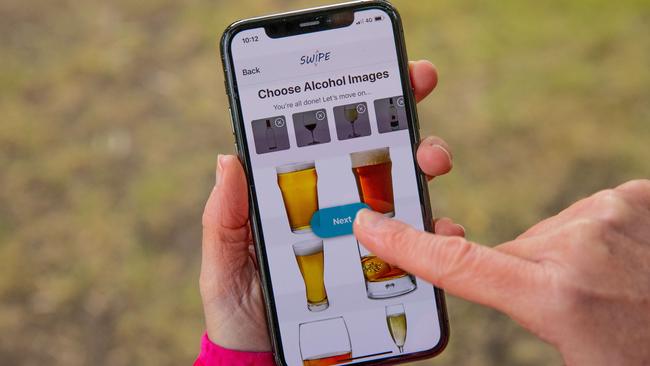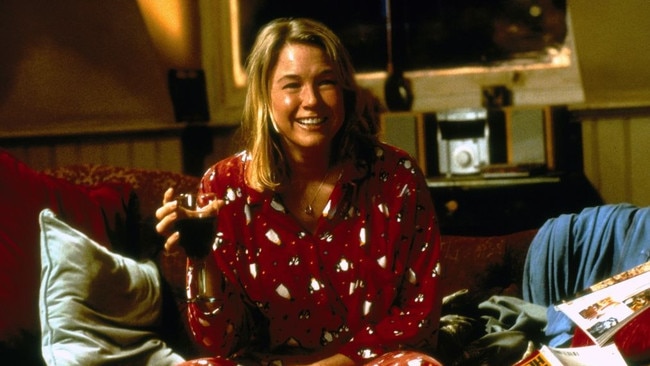The pros and cons of a month off booze
If you thought a Dry January was hard enough, there’s now a mini-break from booze in October. How much good does giving up for a month do?

Without wishing to be a killjoy, let me remind you that we have just entered Macmillan Cancer Charity’s Sober October, another month in which you can foster your sobriety by cutting down on your booze intake or abstaining completely. It might seem no time at all since Sober Spring, which advocates a more hardcore three-month break from alcohol, starting in March, and it feels as though Dry January is looming around the next corner, but if you can bear to put down your glass it promises benefits for your health and waistline.
Figures from Alcohol Change show that 24 per cent of UK adults now regularly drink more than the 14 units a week (equivalent to six pints of beer or 10 small glasses of wine) recommended as a healthy upper limit in government guidelines. However, it is midlifers who are the greatest cause for concern. If anyone needs to reduce their alcohol intake, says Dr Richard Piper, chief executive of the charity, it is the “just one more glass – it’s a school night” brigade.
“The main cohorts we worry about are the 45 to 65 and 65 to 85-year-olds, who are the heaviest drinkers in history,” he says. “There’s overwhelming evidence that younger age groups are drinking less, with 30 per cent of 18 to 25-year-olds now classed as non-drinkers.”
Indeed, temporary temperance is now a hashtag-worthy trend on social media, with terms such as “mindful drinking” and “sober curious” up there with “plant-based” in terms of aspirational lifestyle adjustments.
On Instagram there are more than 26,000 posts with the hashtag “soberglow”, boasting of the anti-ageing effects that come within weeks of giving up booze.
“Your skin glows naturally, 70 per cent of people find they sleep better after Dry January and 66 per cent report better energy levels,” Piper says. “It has become so much more socially acceptable to go alcohol-free at any social event.”
He has a point: a recent survey of 2000 people conducted by the Gilchrist Collection, an up-market wedding venue company, showed there has been a rise in dry weddings, with 24 per cent of guests now going alcohol-free at weddings.
After a month off drinking, your new habit may even stick. Research conducted at the University of Sussex found that 70 per cent of people who engaged in the Dry January challenge were still drinking more healthily – and feeling better for it – six months later. “Around 13 per cent of people who stop drinking for a month end up stopping altogether,” Piper says. “Although some people resume drinking 50 units a week again after completing Dry January, so the outcome is highly individual and not something we can predict.” Here’s how to make it work.
Admit what kind of drinker you are
There are five types of drinker, Piper says, ranging from non-drinkers who never touch the stuff to low-risk drinkers (less than 14 units a week) to people who are alcohol-dependent.
In the middle are those who probably think they are managing their relationship with alcohol but who might be on a slippery slope.
“Women who drink 15-35 units and men who consume 15-50 units per week are classified as hazardous drinkers and are at risk of alcohol harm,” he says.
“And around 10 million people in the UK fall into the harmful drinking category because they drink 35-80 [women] or 50-80 [men] units a week and are already experiencing some level of alcohol harm, although they might not yet know it.”
It is these groups, he says, who will most benefit from altering their intake, so you should be brutally honest about what yours is.
“Alcohol starts to affect health on the inside and there is a direct correlation between your risk of many diseases, including heart attack, type 2 diabetes and stroke, and the units you drink. Alcohol also elevates cancer proteins, but the good news is that by cutting it out for a month and cutting back on it longer-term, you massively reduce your health risks.”
Try Strava-style tracking of your drinking
Apps are a great way to work out where you sit on the drinking spectrum. You can then pace your drinking and keep tabs on calories consumed in liquid form, which will have a tendency to settle around your waistline.
Think of them as the Strava or MyFitnessPal of the alcohol world, a means of tracking and recording your intake for motivational purposes. The pick of the bunch is the free Try Dry app from Alcohol Change, which shows units, calories and money saved in chart form, gives motivational tips and keeps a tally of your best “dry streaks”. It has half a million users.

Another option is the charity Drinkaware’s app, MyDrinkaware, which includes an extensive database of brands with calories and ingredients in their drinks.
Why alcohol-free days won’t work for everyone
Aiming for several alcohol-free days a week will work for some people, but is not for everyone. The idea of weekly drink-free days is to give your liver a chance to repair and heal itself but also, in theory, to give your brain a break from thinking about alcohol.
If you fall into the “low risk” category of drinker who routinely drinks an average of no more than 14 weekly units, this is a worthwhile strategy. But if you drink more than that, it probably won’t work.
“If you usually drink every night and have even a mild dependency on alcohol, the brain doesn’t like the concept of having one or two days off each week, and you will find it very hard to stick to just a few days off each week in the long term,” Piper says.
“If your aim is to get below 14 units on a regular basis, you will need a proper circuit breaker of a month or more – some people need two to three months – for the brain to reset its expectations.”
Don’t stop suddenly if you are a heavy drinker
If you fall into the harmful or dependent drinking categories, it is unwise to stop suddenly without first seeking medical advice.
Alcohol withdrawal symptoms, which typically start 8-24 hours after your last drink, can range from mild – sweating, headaches and anxiety – to severe, including vomiting, shaking and hallucinations.
According to Drinkaware, one in 10 heavy drinkers are affected by seizures if they suddenly stop or reduce intake, so it is important to check in with a GP before attempting to cut down.
How drinking affects your stress levels
Drinking to reduce stress can work, but only within strict parameters. In a study presented at the American College of Cardiology conference, nuclear cardiologists at Massachusetts General Hospital used brain imaging to show that people who drank more than 14 units a week – or a large glass of wine Monday to Friday, which amounts to 15 units – had the highest level of stress-related brain activity compared with those who drank nothing.
However, the same researchers also showed that low to moderate intakes of alcohol – defined as no more than one small alcoholic drink for women and two small drinks for men a day – reduced stress-related brain signals in the group of participants, possibly through effects on the brain that help you to relax.
If you are going to have a glass of wine, choose red
Don’t convince yourself that you are drinking red for its high content of polyphenols, the health-boosting antioxidants found in fruit and vegetables that exert an anti-inflammatory effect on the body. Yes, there are relatively more polyphenols in red wine than in many other drinks, but not more than you would get from eating a bowl of fruit.
“You’d get the same polyphenols without the alcohol in a glass of red grape juice,” the nutritional therapist Ian Marber says. “It’s not a reason to drink alcohol.”
Still, if you are going to drink, red wine is probably the healthiest option.

A 2019 paper by a team of microbiome specialists at King’s College London showed that red wine drinkers tend to have a healthier and more diverse gut microbiome – a marker of good health – than those who regularly consume white wine, beer or spirits.
And a study in the journal Obesity Science and Practice that compared the effects of different drinks on the waistlines of almost 2000 middle-aged and older Britons showed wine drinkers to carry less visceral belly fat – the type that settles around the internal organs – than drinkers of beer and spirits.
Red wine was also the only drink found to reduce levels of visceral fat, with the Iowa State University researchers suggesting that it may discourage fat storage and lower overall inflammation in the body.
Focus on the weight you’ll lose
This year a poll by DrinkWell, the low-calorie alcohol retailer, revealed that many UK adults are packing away a whopping 75,000 calories from alcoholic drinks alone each year.
It’s not hard to see why, when you consider that just two glasses of wine or two pints of beer, with close to 490 calories, are the calorific equivalent of a Big Mac from McDonald’s.
A survey by the charity Action on Sugar at Queen Mary University of London looked at 202 alcoholic drinks and found many to harbour copious amounts of hidden sugar, with only 9 per cent of the drinks analysed declaring full sugar content on the label.
Premixed cocktails were the worst offenders, some containing as many as 12 teaspoons of sugar per 500ml serving – which is more sugar than 10 custard cream biscuits.
“Alcohol is sugary and full of empty calories that offer nothing in terms of nutrition,” says the nutritionist Gabriela Peacock, author of 2 weeks to a Younger You.
You can expect to lose at least lose to 1kg by just cutting out one daily drink for a month – the University of Sussex researchers found three in five people lose weight during Dry January.





To join the conversation, please log in. Don't have an account? Register
Join the conversation, you are commenting as Logout